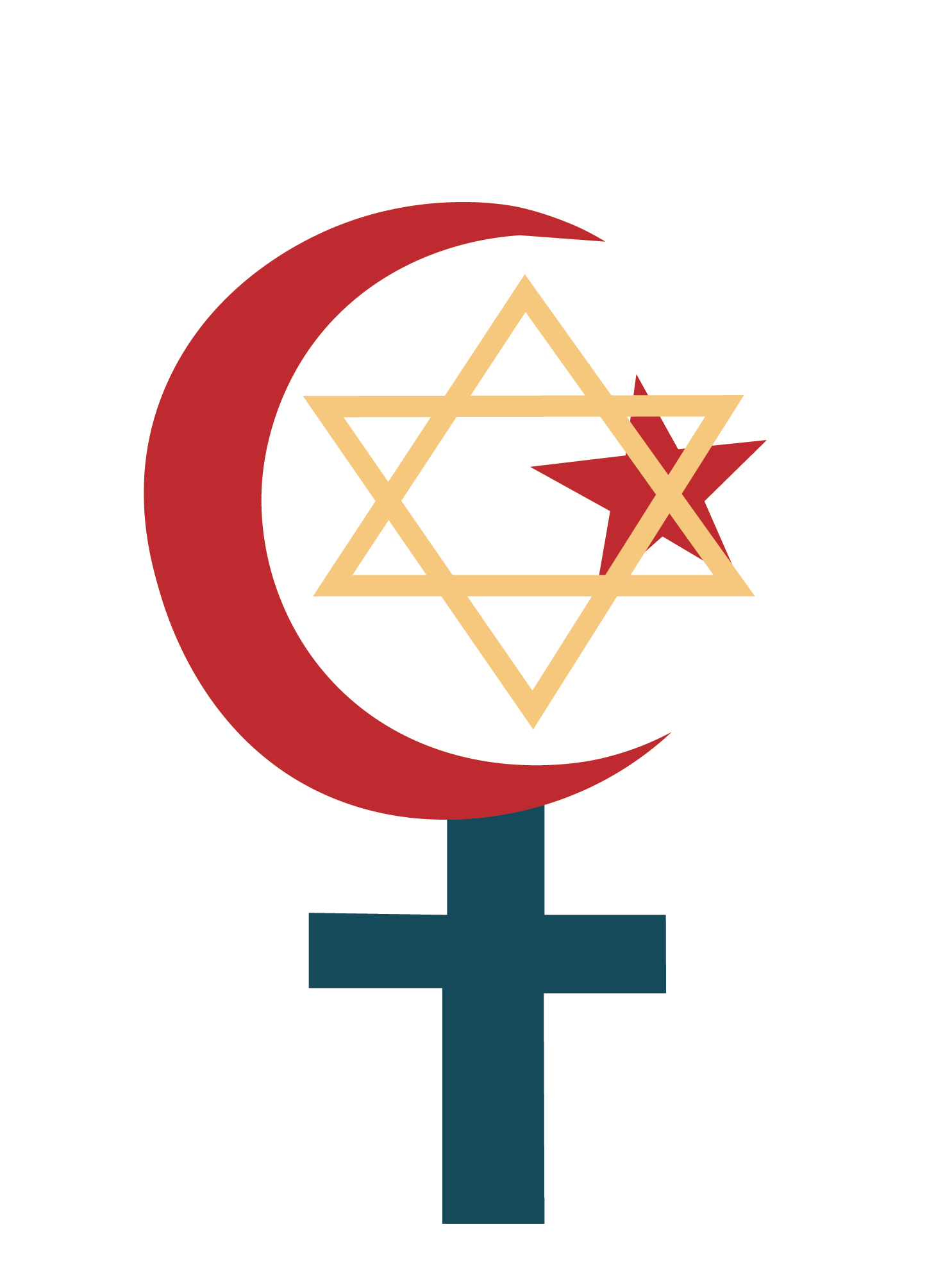Landing Page
Special Projects
This story is part of a series of specially designed stories that represents some of the best journalism The Post has to offer. Check out the rest of the special projects here.


RILEE LOCKHART
03.28.18
In the eyes of many, organized religion has a woman problem.
The majority of the world’s major religious institutions are rooted deeply in patriarchal tradition, and women are no longer willing to sit idly by. From Christianity to Buddhism to Islam, women are increasingly calling for more leadership roles on par with those of their male peers.
While some women stand on the front lines of the fight for equality in religious leadership, others are choosing to leave their faiths. According to the Pew Research Center, the number of women who attend weekly religious services has declined in recent years. Although both men and women seem to be practicing religion less, past data has shown the number of women who attend regularly was significantly greater than men. Now, that gap is shrinking as more women turn away from their faith, possibly for reasons such as increased education and participation in the labor force.
Similarly, young people are significantly less religious than the generations before them. Pew reports only 27 percent of millennials attend religious services weekly. That’s just over half of the 51 percent of the “silent generation,” or those born between 1925 and 1945, who attend weekly.
Although the numbers, the history and the generalized attitudes of others seem to be against it, many college-aged women remain dedicated to their faiths. Twenty-five religious student organizations convene on campus at Ohio University, providing interactive experiences for Christian, Jewish and Muslim students, among others. One mosque, two synagogues and nearly 20 churches exist in Athens, providing nearby houses of worship to students of each faith. And women students additionally find individualized ways to practice and find a sense of belonging and pride through religious involvement.

Recent publicized rhetoric on women’s oppression in religious institutions has revolved around multiple faiths and denominations, Brian Collins, a professor of classics and world religions at OU, said. After 9/11 terrorist attacks, plenty of discourse arose on the treatment of women in Islam. The Church of Jesus Christ of Latter-day Saints has also drawn criticism for excommunicating women who advocate for the priesthood, and Hasidic Judaism has come under fire for upholding a patriarchal culture within its closed communities.
The critiques of those faiths have arisen both internally and from outside critics. But criticizing a culture or faith that is different from one’s own is anything but simple, Collins said.
Despite what others may think, women remain dedicated members of faith for very personal, individualized reasons. Some may see they have a responsibility to make changes for women from within the faith; others may be comfortable with the role they hold.
“The largest … traditions tend to be patriarchal in nature,” Collins said. “Yet within them, there are a lot of women who have … found their own identities.”

Bree Becker, the director of Jewish life at Hillel at OU, said because most Americans are fairly religiously illiterate, there is a desire to paint all religion with a very broad brush. The idea that all religion is oppressive to women stems from that desire to generalize.
“I think you can make that claim about specific communities, but, even then, there’s this sort of question of what it means to speak for people,” she said. “If you don’t feel oppressed, are you? I think sometimes yes, sometimes no. And sometimes people are choosing a life which you wouldn’t choose, but that isn’t necessarily oppressive.”
In Judaism, for example, attitudes regarding women’s involvement vary widely among different denominations. From leadership roles to public behavior, different traditions consider women very differently, Becker said. Some women choose to embrace more liberal traditions, while others prefer traditional roles. In either case, the kind of involvement a woman chooses is interpreted individually and speaks to her in a distinctive way that others may not always understand.
“Religion, I think is incredibly personal, as much as it is also political and social,” Becker said. “I think the way we enact religion individually is super personal and often plays out things that are so deep within us, we don’t even know why we’re doing it. It just somehow speaks to something.”
As a female religious leader in Athens, Becker serves as an important point of visibility for the potential for religious leadership by women. Additionally, she may also have a special opportunity to connect with female students in a way a male leader might not be able to. That can be important at a time of radical change for an individual, such as the years spent in college.
“I think college students are in a time where religion is becoming either a lot more salient or a lot less salient in their lives, depending on what path they’re traveling,” Becker said. “This is sometimes a time of great religious exploration and sometimes a time of pulling away from religion.”

Jackie Levine, a junior studying communication, grew up practicing Judaism. From the time she was a child, carrying on her family’s tradition of practicing Judaism was important, in part because of her grandparents’ presence during the Holocaust.
But when she moved to college, Levine became even more dedicated to her faith, becoming involved in the Jewish student organization Chabad and eventually becoming president of the group.
“I feel like I’ve gotten more religious in college, just because I can make my own decisions now,” she said. “It’s not my parents making the decision of when I’m going to our synagogue or not. I would say that it has made me more religious.”
Levine, who practices Reform Judaism, believes any interpretations that might see organized religion as oppressive to women are outdated. To her, religion is a source of socialization and enjoyment through the carrying on of a tradition.
“Just meeting people that have the same values and morals as me has helped me make connections and friends,” she said.
Hams Kashoob, a sophomore studying biological sciences, has been a practicing Sunni Muslim all her life. She has found that interacting with other Muslim students through her involvement in the Omani Student Association and other groups to be a comfort, especially through some of the particular challenges Muslims at OU may face.
Because Muslims pray five times daily and Muslim women are typically not permitted to pray in front of men, finding a space to pray was a bit of a challenge for Kashoob when she first came to college. The opening of the meditation room in Alden Library has helped, but the difficulty somewhat remains.
“You get used to it,” Kashoob said.
Despite any inconveniences, Kashoob considers her faith an important part of who she is. She wears her hijab as a symbol of her pride in being a Muslim woman and has found comfort through prayer in times of difficulty.
“Sometimes, I will have some low times where I’m depressed and sad,” she said. “So when I do pray, I feel relaxed and like my stress is released.”

Megan Sindeldecker, a senior studying music therapy, grew up attending a Methodist church with her family, but it was only after a discussion with another college woman during her freshman year at OU that she felt she became a true believer. After attending a social event hosted by Christian student organization Cru, a member shared the Gospel with her over coffee and opened her eyes to a new way of viewing the world.
“It was just a way that I’d never really heard it or understood it before,” Sindeldecker, now the president of Cru, said. “Everyone always hears Jesus died for our sins, but I don’t think I ever understood why Jesus died for our sins until that day.”
“I think that really last year was where I went through a lot of life challenges and, through all of it, I could always come back to my faith. I think it’s the core of who I am, and, if everything else in my life is taken, I can always rely on God alone.”Megan Sindeldecker, a senior studying music therapy
Sindeldecker said she feels she has a special opportunity to add a Christian voice to discourse on women’s issues. In a women’s, gender and sexuality studies class she took, Sindeldecker felt she made a helpful contribution to the conversation by offering her experiences of feeling empowered by her faith.
“No, I don’t feel constantly oppressed, even though some other women might think I feel that way,” she said. “A lot of people outwardly just believe women are innately oppressed within Christianity and religion. And I think it was a really special opportunity to be in that class in particular and have a Christian voice be giving a more diverse representation of women in college.”
Opposition and criticism from others may arise; despite them, Sindeldecker, like others, finds comfort through both her personal interpretation of and her relationship with her faith. A bad grade or a missed job opportunity may be disappointing, but it does not define her — she finds her identity rooted most deeply in her faith.
“I think that really last year was where I went through a lot of life challenges and, through all of it, I could always come back to my faith,” she said. “I think it’s the core of who I am, and, if everything else in my life is taken, I can always rely on God alone.”
Landing Page
This story is part of a series of specially designed stories that represents some of the best journalism The Post has to offer. Check out the rest of the special projects here.